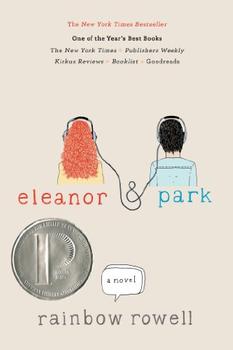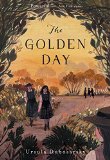Summary | Excerpt | Reviews | Beyond the book | Read-Alikes | Genres & Themes | Author Bio

"My grandmother died," says fourteen year old Jono at the opening of Siobhán Parkinson's Long Story Short. "I know this is not what you would call a dramatic opening. Mr. O'Connell, who is my Creative Writing teacher... would say 'not intriguing enough, Jonathon. You need to hook your reader.' I don't need to do any hooking, because this is not Creative Writing. This is what really happened." And thus Jono begins to tell his story.
Written in two parts, Long Story Short, is told in a close first person point of view. The reader gets deep inside Jono's head, and so it is hard to know whether or not to trust him. Did his mother hit his sister Julie so hard that she broke her cheekbone? Did he have no choice but to decide that they needed to run away? There is no other perspective from which to gain more information, nor is there a witness to the events that unfold between Jono, Julie and their mother, so the facts that permeate the story are unsubstantiated. And yet - it is easy to want to believe Jono. Why is this?
Jono's voice is unique and powerful. He is sarcastic and jaded, yet also carries a quiet hopefulness within him. He sounds like someone who has lived through much pain but, at the same time, someone who chooses to be optimistic. All together, this creates a very complex voice and a very believable character. So while the close first person POV technically makes Jono an unreliable narrator, Siobhán Parkinson has written him in such a multi-dimensional way, the reader feels connected to him and, more importantly, trusts him because he is so transparent and so willing to share.
This becomes unquestionably clear in Part II, which begins, surprisingly, in the third person.
"'So that's your story, and you're sticking to it?' Paudge Rooney stared into Jonathon Kinahan's eyes. 'No,' said the boy..." Quickly the story switches back to first person. "Oh, lordy me, I can't keep this up. I thought the third person might make it all seem more real somehow, but it's hard work writing about yourself as if you are not yourself. You can't tell about what you are thinking, and that's really the whole point, isn't it?"
Yes, in some ways that is the whole point. Throughout Jono and Julie's runaway adventure, the reader is pulled right into Jono's mind; his thought-process is easily tracked from moment to moment, and his reasons for making certain choices are spelled out in detail. But the reader is also pulled right into Jono's heart, and so his emotional journey is fully accessible too.
Siobhán Parkinson has written a tight, funny, and heartbreaking story of one boy's determination to keep his ever-dwindling family - which ultimately consists of his sister and himself - together. This is at the heart of Jono’s voice. This is what makes his story so believable: his unwavering love for Julie.
Long Story Short is a perfect middle grade and young adult read. Clearly told from within an Irish landscape, it is universal both in its humor and drama.
![]() This review
first ran in the August 4, 2011
issue of BookBrowse Recommends.
This review
first ran in the August 4, 2011
issue of BookBrowse Recommends.

If you liked Long Story Short, try these:

by Rainbow Rowell
Published 2020
Set over the course of one school year in 1986, this is the story of two star-crossed misfits - smart enough to know that first love almost never lasts, but brave and desperate enough to try. When Eleanor meets Park, you'll remember your own first love - and just how hard it pulled you under.

by Ursula Dubosarsky
Published 2015
When their teacher goes missing during an outing, eleven girls grapple with the aftermath in this haunting, exquisitely told psychological mystery.
Your guide toexceptional books
BookBrowse seeks out and recommends the best in contemporary fiction and nonfiction—books that not only engage and entertain but also deepen our understanding of ourselves and the world around us.